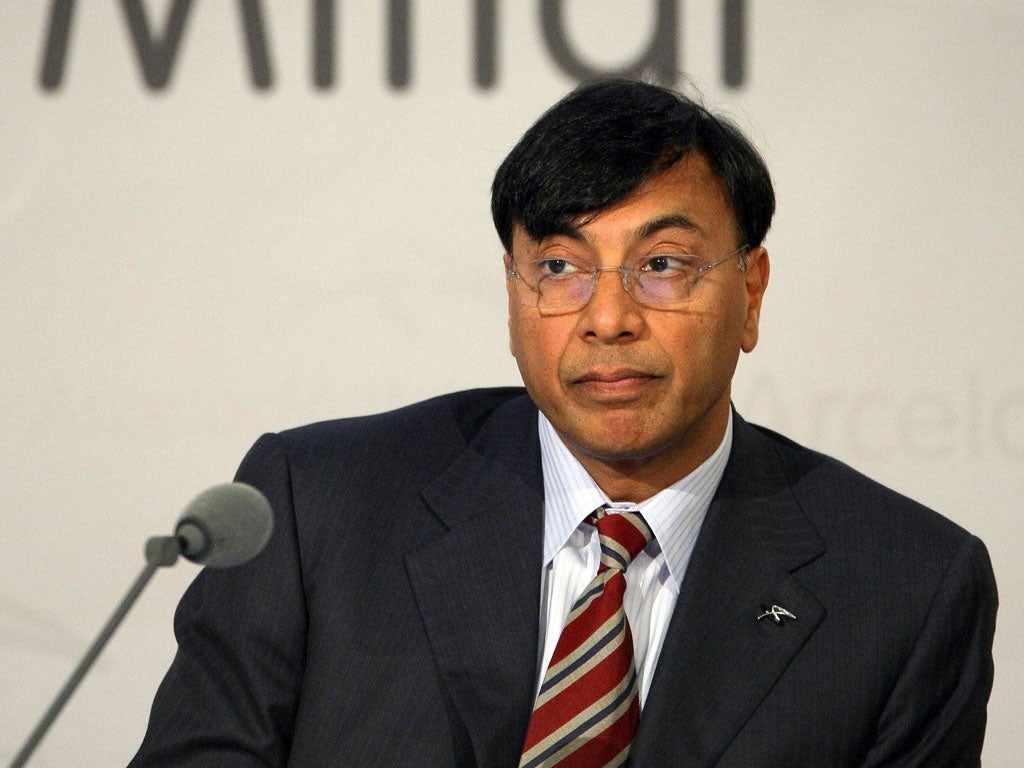Mittal told: sell French plant or see it nationalised
Left-wing fury at British billionaire's plan to break up €400m site

Final efforts will be made today to avoid a potentially destructive clash of steel between the Socialist-led government in France and Britain’s richest man.
Paris is threatening to nationalise, a €400m (£323m) steel plant in eastern France unless the Indian-born billionaire Lakshmi Mittal agrees to sell it to a private buyer before midnight tonight. Mr Mittal’s company, ArcelorMittal, the world’s biggest steel-maker, wants to close or sell two blast-furnaces at Florange in Lorraine but to hold on to other profitable activities at the site. France insists that the whole complex must remain open under a single owner. In France, the dispute has come to symbolise the determination of President François Hollande to resist, or even reverse, the erosion of France’s industrial base.
Abroad, the word “nationalisation” has set alarm bells ringing. There have been mocking accusations from, amongst others Boris Johnson, the Mayor of London, that France has reverted to the statist 1970s, or even the revolutionary 1790s. French officials say that “temporary” nationalisation – compulsory purchase to allow the site to be re-sold to a private buyer –would be justified to save jobs and protect France’s remaining capacity to produce raw or “hot” steel.
The government’s tough tactics have won praise not only on the Left but from senior politicians of the French Centre and Right. Almost the only dissenting voice in France has been Laurence Parisot, the leader of the French employers’ organisation, Medef. She said yesterday that the “expropriation” of ArcelorMittal would be “an attack on private property” and a disastrous signal to international markets and potential investors.
The rhetorical temperature in the dispute was raised earlier this week when the left-wing French Industry minister, Arnaud Montebourg, said Mr Mittal was “no longer welcome” in France. Since ArcelorMillal owns more than 100 sites in France employing 20,000 people, this seemed a counter-productive approach to protecting the country’s productive base. Mr Montebourg later backtracked somewhat, saying he had only meant to show the red card to “Mittal’s methods” which he listed as “broken promises, blackmail and threats”.
In 2006, after a hotly disputed hostile takeover, the Mittal organisation merged with Arcelor, which had inherited much of the old French, Luxembourgish and Spanish steel industries. Paris says that Mittal promised at the time, and again in 2009, to maintain full steel production, including the blast furnaces, at the Florange site. The French government also accuses ArcelorMittal of failing to pay some of its French taxes.
ArcelorMittal officials deny both claims. They say the blast furnaces at Florange, which make raw or liquid steel, are no longer viable because of a fall in European demand. The rest of the site makes high-quality, laminated or sheet steel for the German car industry, using raw steel from other parts of the ArcelorMittal empire. If forced to cede these activities, the company says, the whole of its French operations would be destabilised.
Paris replies that the blast furnaces are unsellable if separated from the rest of the site. If they closed, 600 jobs would be lost and France’s strategically important capacity to produce raw steel would be irreparably damaged.
Oddly, nationalisation would reduce, rather than increase, France’s public debt burden. Paris plans to raise the money by selling part of the state’s residual stake in other large businesses, such as Air France or Renault – a partial de-nationalisation to fund a temporary nationalisation.
Mr Montebourg says that he already has at least one potential, private buyer for Florange who is willing to pay €400m. Once the site goes back to the private sector, the proceeds could be used to reduce the French state debt.
Join our commenting forum
Join thought-provoking conversations, follow other Independent readers and see their replies
Comments
Bookmark popover
Removed from bookmarks